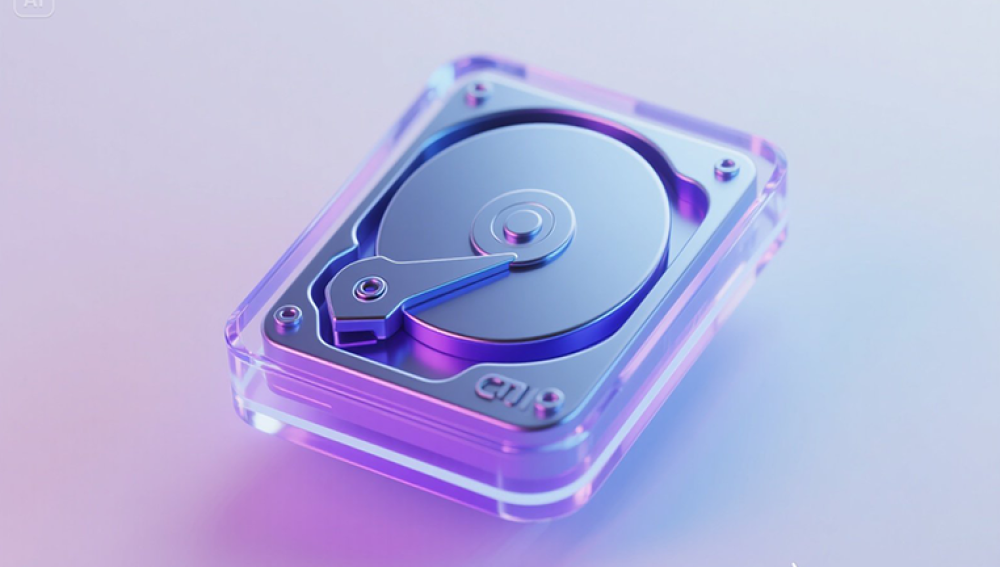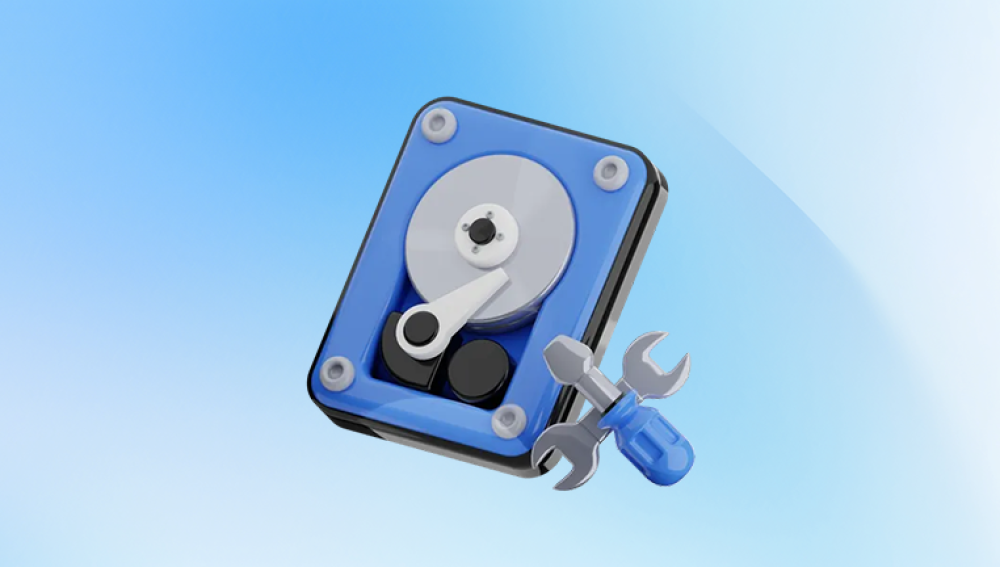Hard drives are the silent workhorses of our digital world. They store everything from cherished memories and personal documents to business-critical data and entire operating systems. When they work, we rarely think about them but when they fail, the consequences can be catastrophic. New York, with its blend of bustling business districts and tech-savvy consumers, faces countless hard drive issues daily, ranging from mechanical failures and data corruption to accidental deletions and physical damage.
Hard drive failures generally fall into three categories: logical, mechanical, and electrical. Understanding what you're dealing with is the first step in finding the right solution.
Logical Failures
These issues involve the data structure on the drive rather than the hardware itself. Examples include:

Corrupted file systems
Accidental formatting
Deleted files
Software errors during boot
Logical failures are typically the easiest and cheapest to repair, especially when caught early. Data recovery tools and software-based repairs are often effective here.
Mechanical Failures
Mechanical problems stem from the moving parts inside a hard disk drive (HDD). Signs include:
Clicking, grinding, or whirring noises
Inability to spin up
Inconsistent access to files
Mechanical failures are serious. They usually require cleanroom environments to open the drive safely and repair or replace internal parts such as the read/write heads or platters.
Electrical Failures
These include issues with the PCB (printed circuit board), power surges, or static electricity damage. A drive might appear dead or unresponsive. Technicians can often repair these by replacing boards or performing chip-level repairs.
Symptoms That You Need Hard Drive Repair
Recognizing the symptoms of a failing hard drive early can save your data and reduce the cost of repair.
Unusual noises: Clicking, buzzing, or grinding sounds are classic indicators of internal damage.
Frequent crashes: Repeated system reboots, blue screens, or error messages may point to data corruption or drive failure.
Disappearing files: Files that vanish or folders that won't open can signal logical damage.
Slow performance: Laggy access to files, long boot times, or freezes might mean sectors are failing.
Drive not recognized: If your system or BIOS doesn't detect the drive, you could be facing electrical failure or connector issues.
Hard Drive Types Serviced in New York
Repair services in New York cater to a wide range of hard drives:
Desktop HDDs and SSDs
Laptop internal drives
External USB drives
RAID arrays and NAS units
Enterprise-class server drives
Gaming console drives (PlayStation, Xbox)
Surveillance system drives (CCTV DVRs/NVRs)
This versatility makes NYC an excellent place for data recovery and repair regardless of your hardware type.
Choosing Between Repair and Recovery
It’s essential to understand the difference between repairing a drive and recovering data:
Repair focuses on restoring the drive to working condition, either to keep using it or retrieve data.
Recovery focuses solely on salvaging data without necessarily restoring drive function.
If your priority is to get files back (photos, documents, databases), then data recovery is usually the goal—even if the drive is never usable again. Repair is more applicable when you want to restore functionality (e.g., boot from the same drive again).
Common Repair Services Offered in NYC
New York offers a rich ecosystem of hard drive repair services that range from mom-and-pop shops to high-tech labs. Common services include:
Diagnostic Services
Most reputable providers start with a comprehensive diagnosis. Some offer this for free or apply the cost toward a repair if you proceed. The diagnosis helps determine:
The type of failure
The extent of damage
Repair or recovery feasibility
Estimated cost and turnaround time
Data Recovery
This is the most requested service. It includes:
File structure rebuilding
Deleted file restoration
Partition repair
Deep sector analysis
Platter imaging (in mechanical cases)
Mechanical Repairs
Cleanroom services are vital when dealing with mechanical failures. NYC has several certified cleanroom environments (ISO Class 5 and up) where trained engineers can open and service delicate components.
PCB Replacement and Electrical Repairs
These involve component testing and board swaps. Skilled technicians in New York can transplant ROM chips and reprogram boards as needed.
RAID and Server Drive Services
For businesses, RAID recovery is crucial. New York labs often have expertise in:
RAID 0/1/5/10 reconstruction
Virtual machine recovery
Exchange and SQL server restoration
Secure Destruction and Cloning
For users who need to securely dispose of a drive or clone data to a new medium, most NYC services provide secure erase, DoD-level wiping, and one-to-one drive cloning.
What to Look for in a Hard Drive Repair Service
Given the volume of options in New York, it helps to know what differentiates a quality provider:
1. Experience and Reputation
Look for businesses with:
Years of experience in the field
Client testimonials and case studies
Clear success rates for similar cases
2. Cleanroom Facilities
Especially for mechanical failures, ensure the provider has access to a cleanroom for safe component disassembly and platter access.
3. Transparent Pricing
Beware of services with vague estimates. Many reputable places offer tiered pricing based on the type of damage, with no recovery, no charge guarantees.
4. Security Protocols
In a city like New York, privacy is paramount. Look for services with documented data handling practices, secure facilities, and nondisclosure agreements upon request.
5. Turnaround Time
Some services offer expedited options, including same-day diagnosis or 24–48 hour emergency recovery. Standard services may take 3–7 business days.
Top Neighborhoods for Hard Drive Repair in NYC
Certain boroughs and neighborhoods have higher concentrations of computer service providers:
Manhattan
Midtown: Popular with corporate clients, many vendors cater to business laptops and RAID recovery.
SoHo and Tribeca: Home to boutique tech shops that often provide personalized repair services.
Brooklyn
Williamsburg and Downtown Brooklyn: Growing tech scenes mean plenty of affordable and skilled data recovery services.
Park Slope: Family-run computer repair shops often offer reasonable rates and solid results.
Queens
Astoria and Long Island City: Known for budget-friendly services and multilingual support for a diverse clientele.
The Bronx & Staten Island
More limited options exist here, but mobile repair services and pickup/delivery options make recovery accessible.
Questions to Ask Before You Commit
Do you charge for diagnostics?
What is your no-data, no-fee policy?
Is my drive worked on in-house or sent to another lab?
Do you provide a list of recoverable files before payment?
What security measures do you take to protect my data?
Average Repair Costs in New York
Prices vary widely based on the issue:
Logical Recovery: $100 – $400
Electrical Repair: $200 – $600
Mechanical Failure: $500 – $1.500+
RAID/NAS Recovery: $800 – $3.000+
SSD Recovery: $300 – $1.000 (due to complex chip-level work)
Keep in mind that pricing often reflects labor intensity, the value of the equipment used, and turnaround time. Emergency cases typically cost more.
DIY Repair: Should You Try It?
While it’s tempting to save money by attempting a fix yourself, tread carefully.
Safe DIY Scenarios
Using recovery software for recently deleted files
Trying a different USB cable or port
Plugging into another computer to rule out interface problems
Risky DIY Scenarios
Opening the drive casing outside a cleanroom
Freezer methods (widely debunked)
PCB swapping without reprogramming firmware chips
If your data is irreplaceable, avoid DIY attempts and go directly to professionals. Mistakes can permanently destroy recovery chances.
Data Recovery Software vs. Professional Services
Software is only effective for logical failures. Trusted tools like Recuva, R-Studio, or EaseUS can help—but they’re no match for mechanical or electronic failures. Additionally, using software incorrectly can overwrite lost data.
If you’ve already tried recovery software and failed, a professional service is your best option.
Preventing Future Hard Drive Issues
To avoid another hard drive catastrophe, implement these strategies:
1. Regular Backups
Use the 3-2-1 rule:
Three total copies of your data
Two on different storage types
One off-site or cloud-based
2. Avoid Physical Stress
Keep drives on stable surfaces. Avoid drops or jostling—especially while the drive is spinning.
3. Use Surge Protectors
Power surges are a common cause of electrical failure. Invest in surge protectors or an uninterruptible power supply (UPS).
4. Monitor Drive Health
Use tools like CrystalDiskInfo or SMART monitoring systems to keep an eye on drive health and temperature.
5. Upgrade Older Drives
HDDs over 5 years old are more prone to failure. Consider upgrading to SSDs, which have no moving parts and are more resilient.
Hard drive failures are inconvenient at best and devastating at worst—but New York offers a robust network of professionals ready to help. Whether you're dealing with logical corruption, clicking heads, or an unresponsive SSD, there’s a technician or data recovery specialist who can get your files back and restore your peace of mind.




